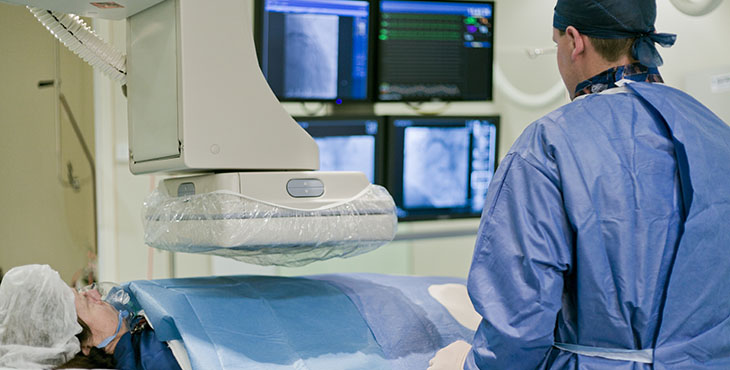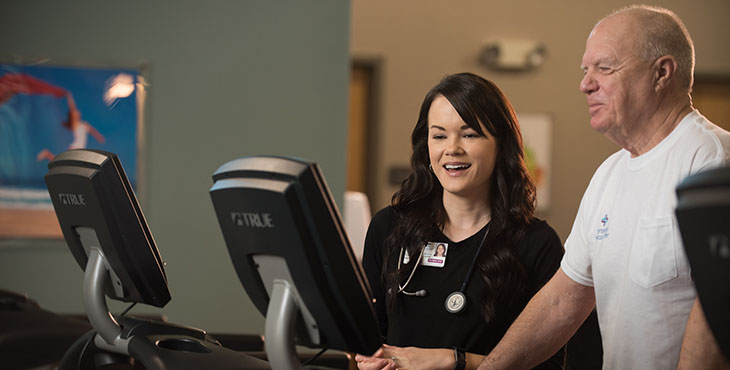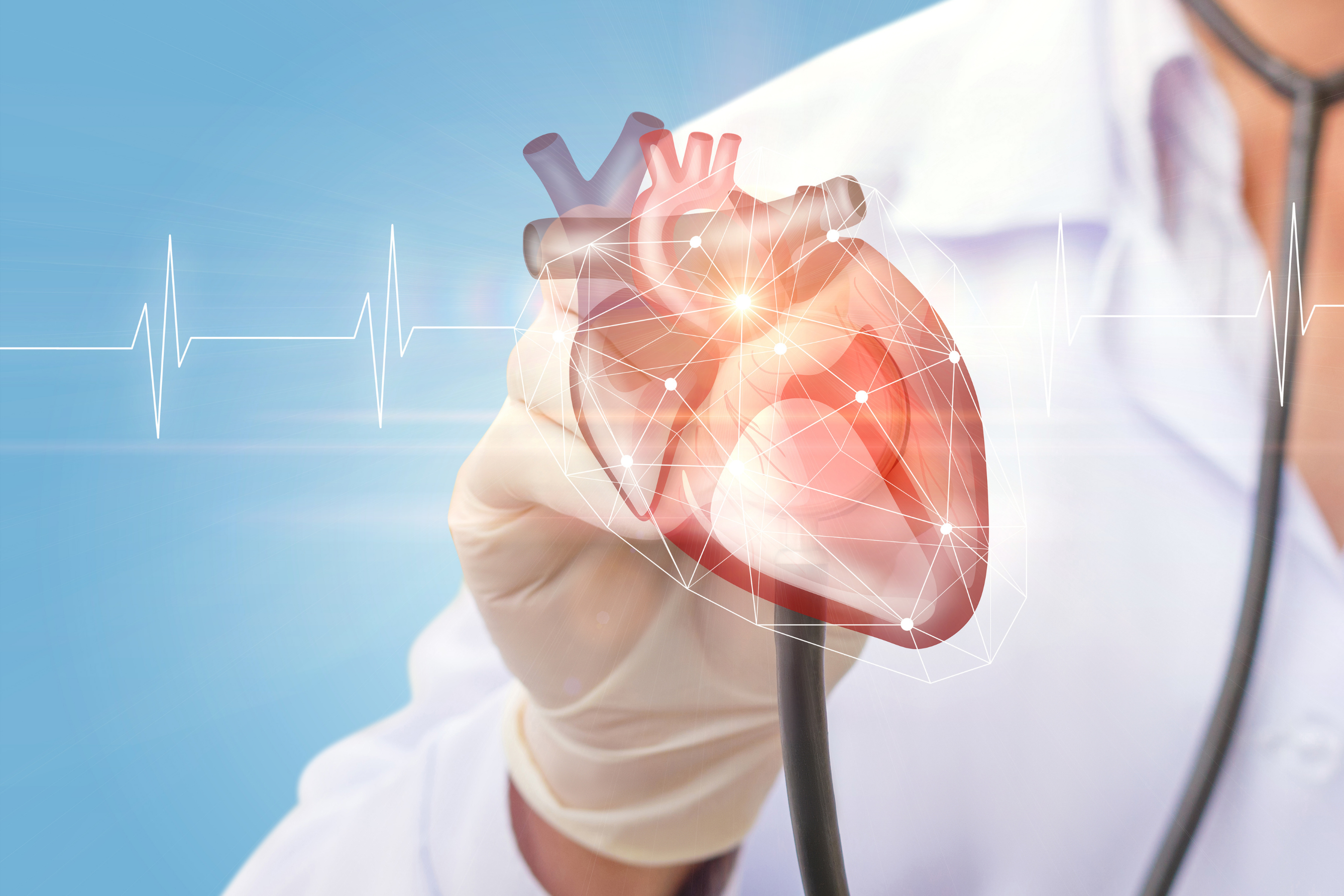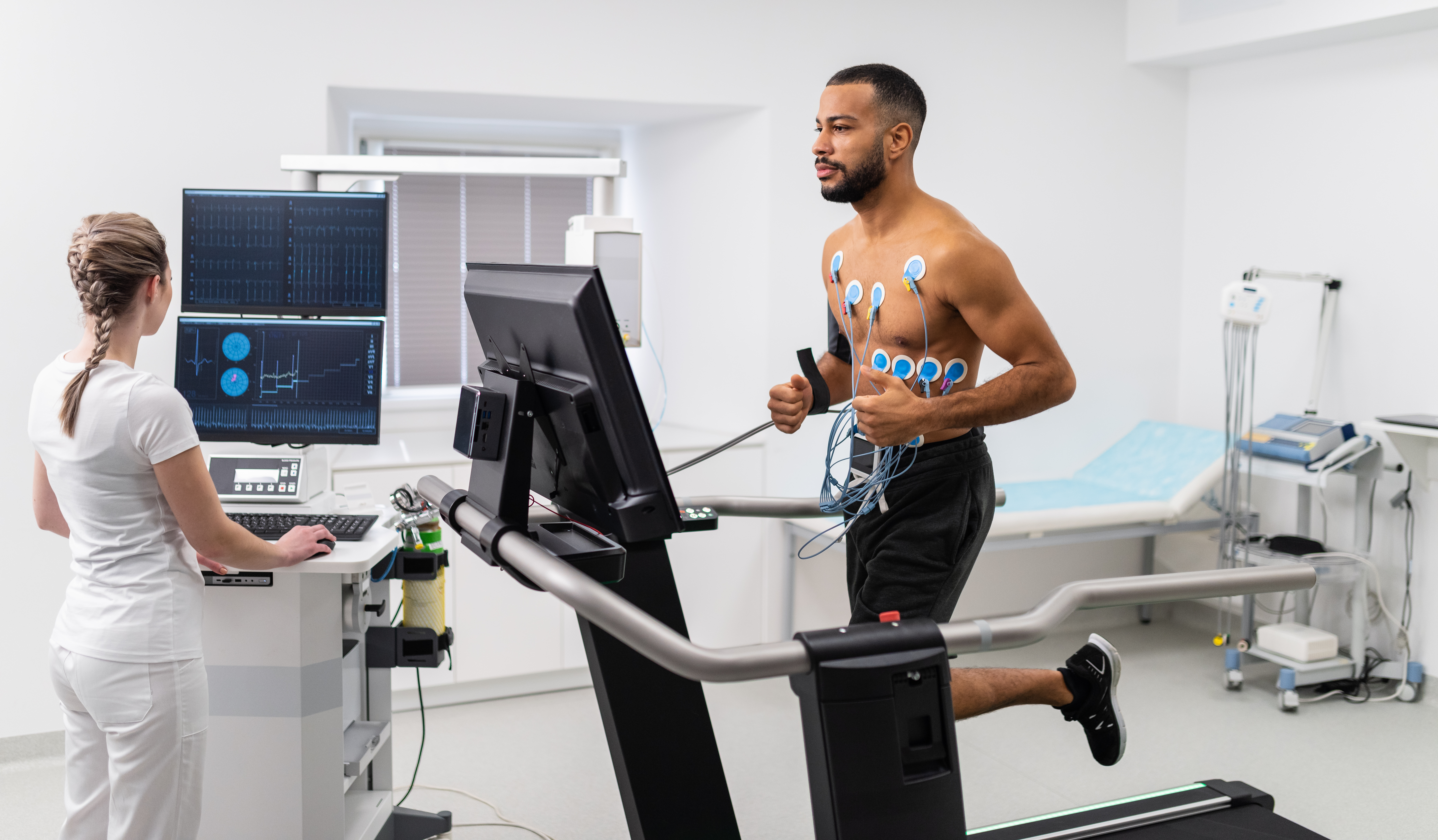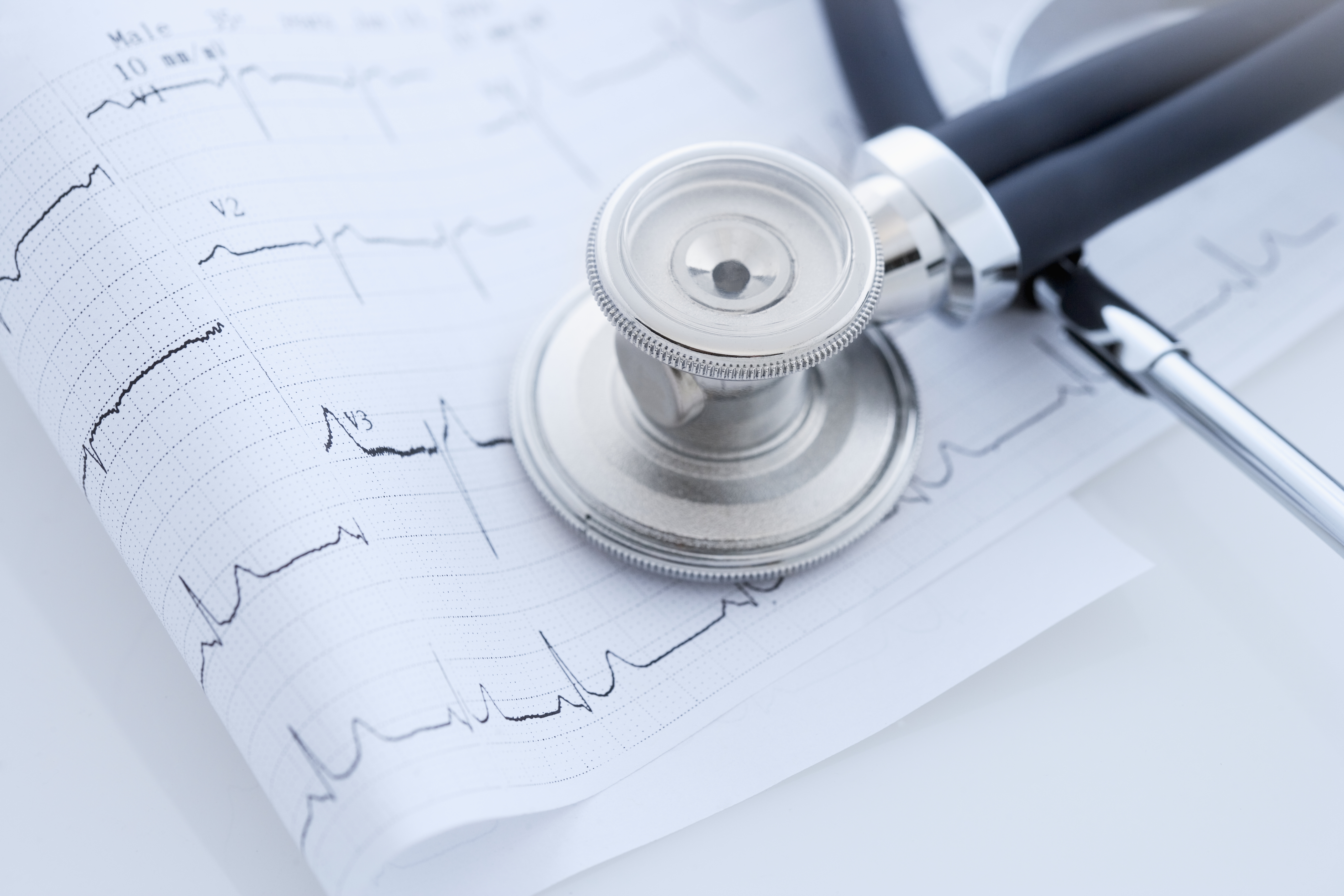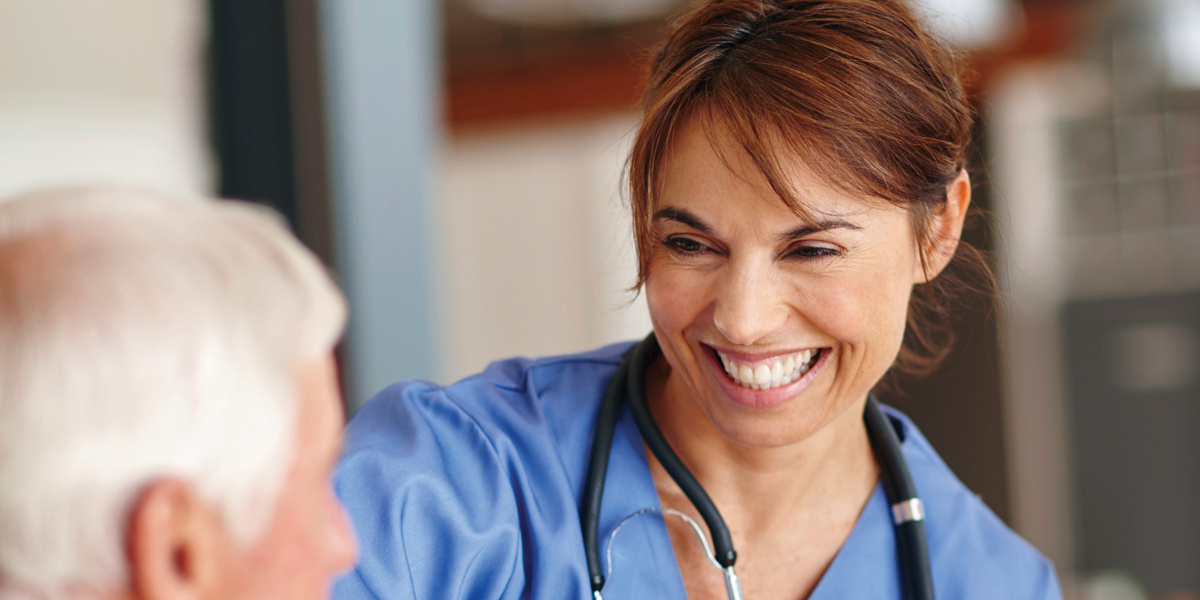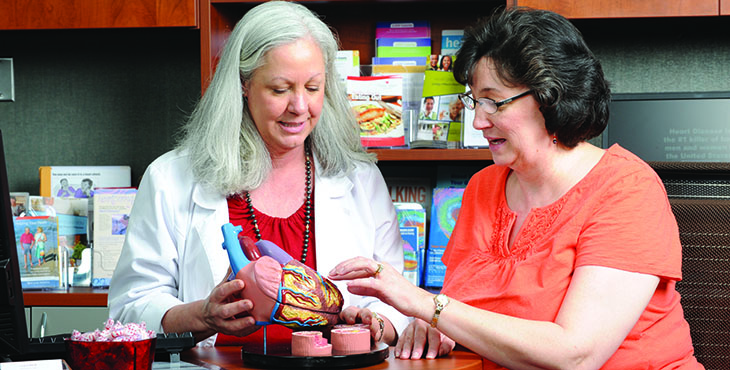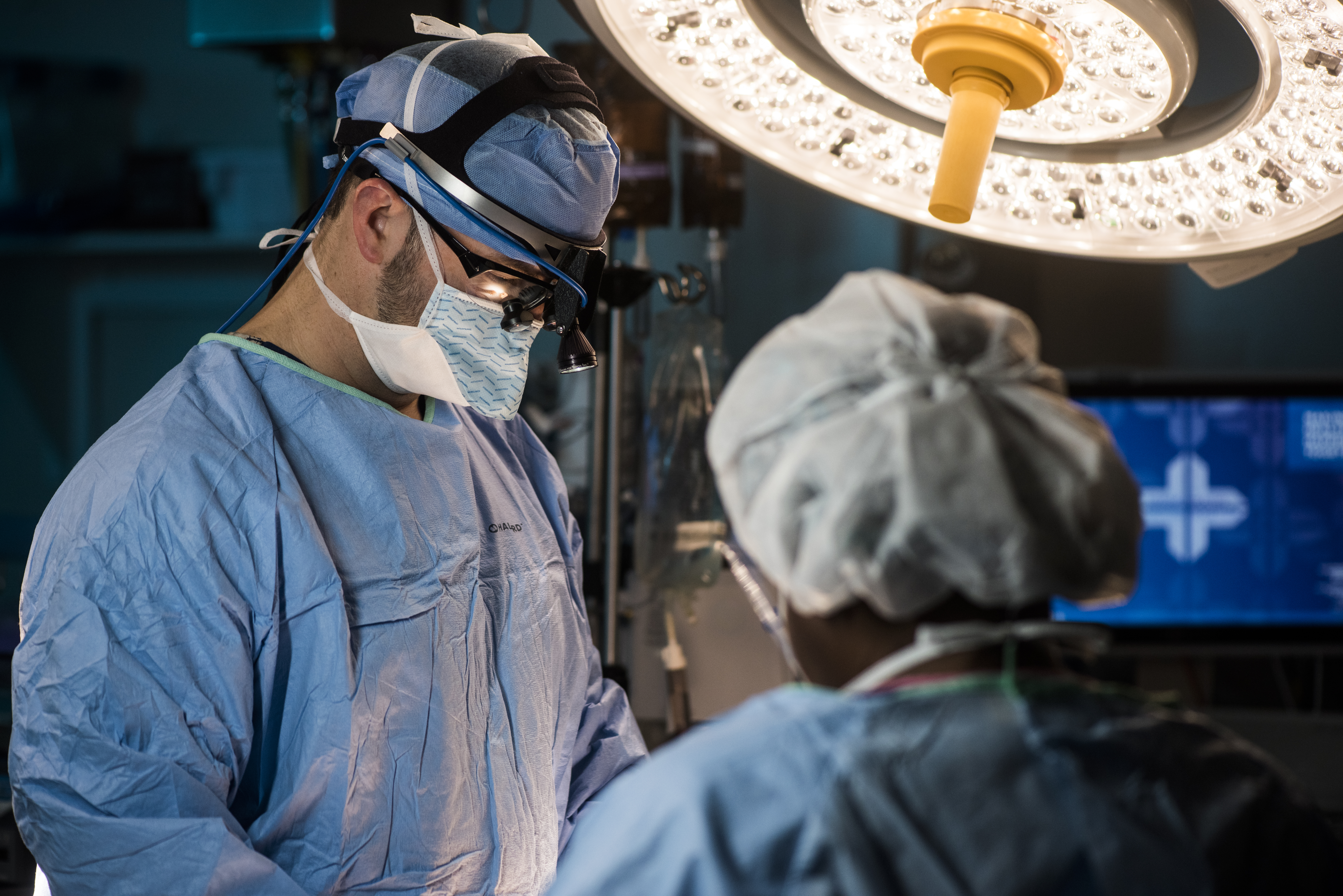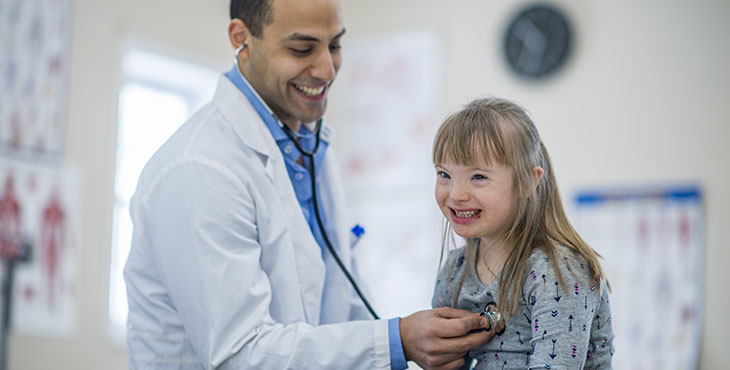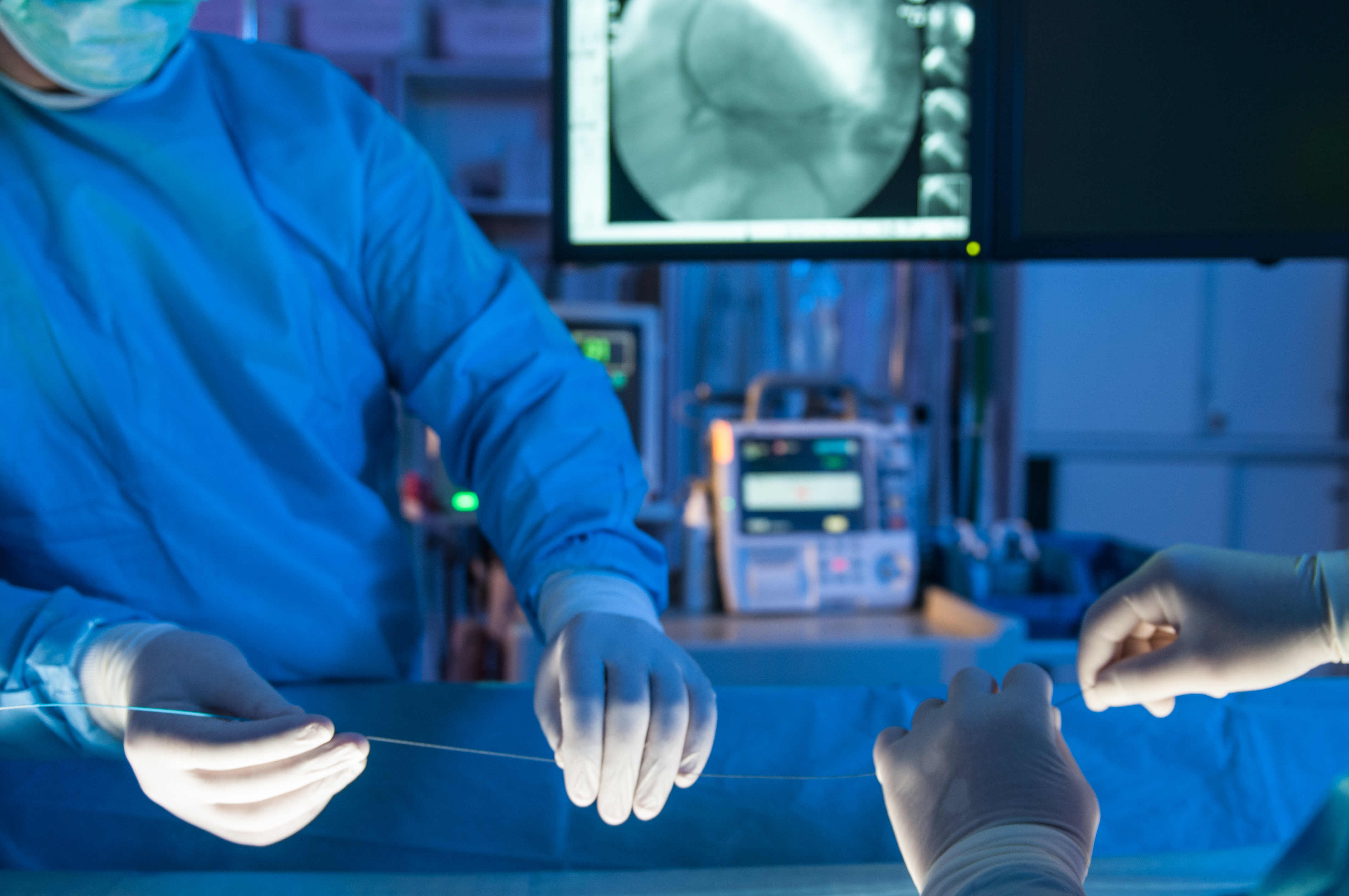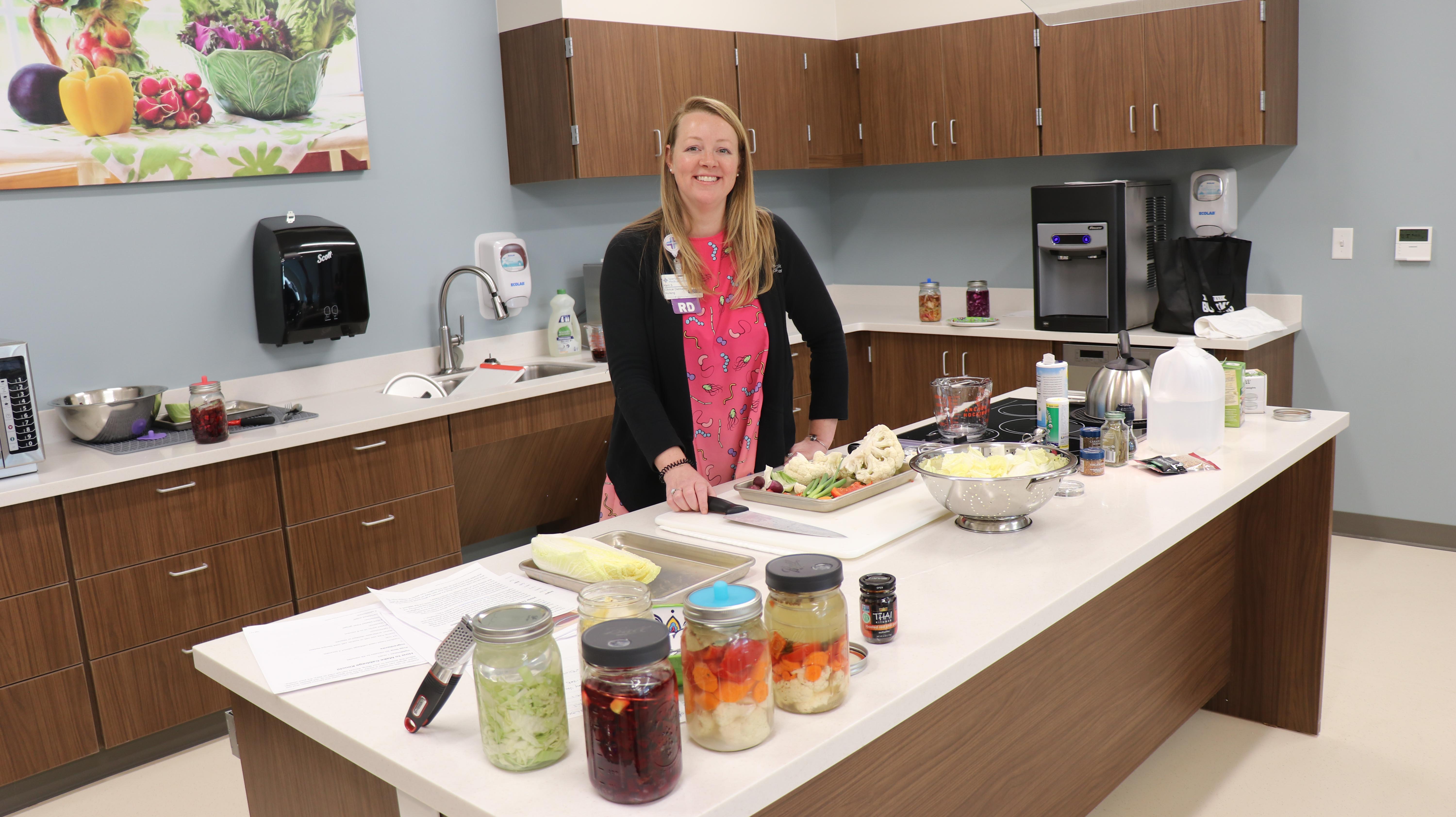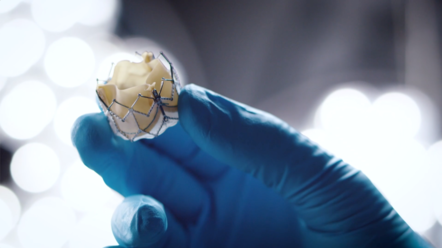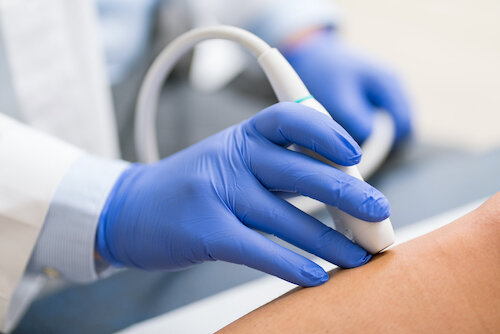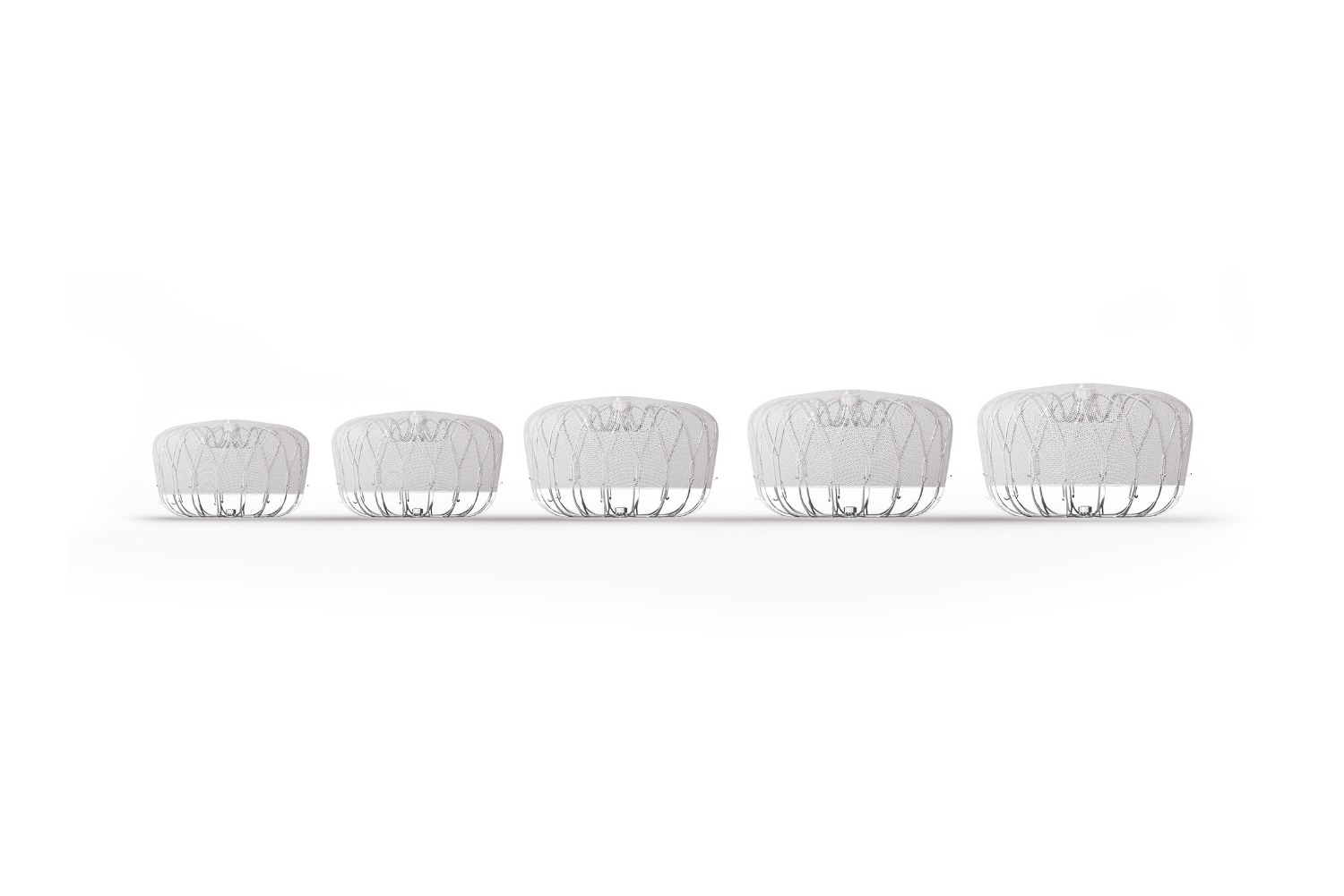Heart
Top-ranked heart care, trusted by experts, focused on you.
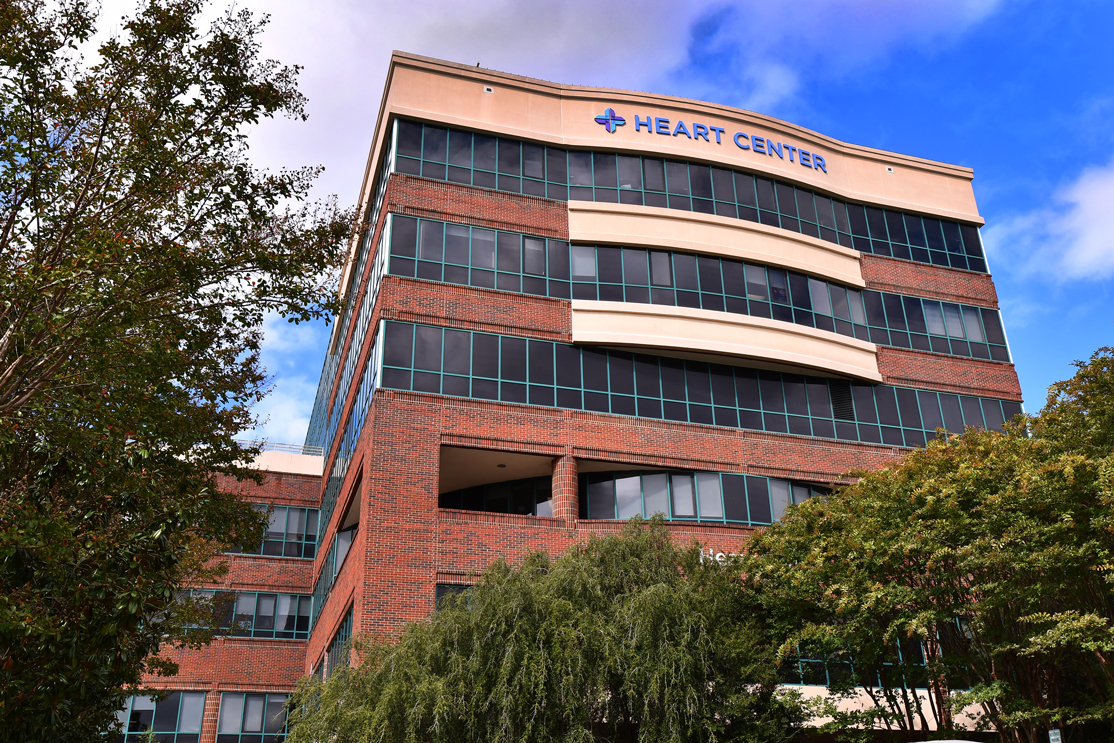
About
Heart disease can occur before you are born or develop over time. A variety of things can affect the heart, including lifestyle, smoking, chronic disease, age, family history, and substance abuse.
At Spartanburg Regional Healthcare System our heart program holds national recognition and accreditation. We are proud to offer our community the very best cardiac programs and services, including disease education and prevention, diagnosis, treatment, recovery and survivorship.
Our patients have access to the most comprehensive and advanced levels of cardiac care. From emergencies to chronic disease, we treat our patients as we would members of our own family.
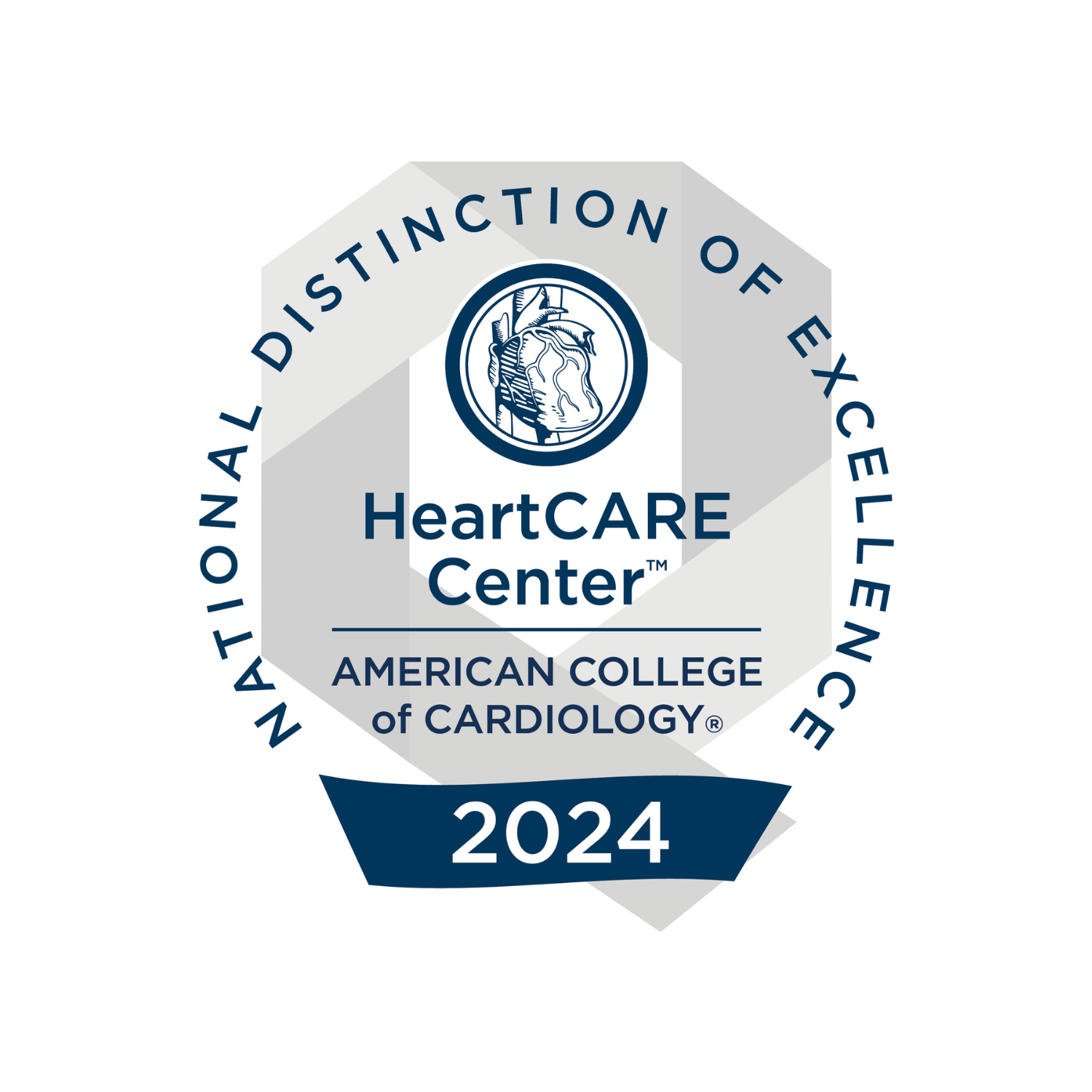
Award-winning Care
Our nationally recognized heart program provides patients with the most comprehensive and advanced levels of cardiac care. We are with you every step of the way — from your initial visit, to recovery and follow-up care.
The health of your heart is our number one priority.
Explore our programs and treatments and services offered for more detailed information about our program, including:
Treatments
Spartanburg Regional offers the latest, most advanced treatments for a wide range of heart conditions, including:
- Heart and vascular — conditions that affect the heart’s blood vessels
- Structural heart — abnormalities of the heart that do not affect the blood vessels
Support
In addition to our comprehensive cardiac rehabilitation program, our heart failure centers offer heart failure patients the disease management tools, information and support they need to take control of their disease.
Heart Education
Learn more about the signs of a heart attack, as well as the early signs of heart disease, heart disease prevention strategies, and helpful lifestyle modifications.
Emergency Services
If you, a friend, or a loved one is experiencing early heart attack symptoms, do not drive to the hospital - call 9-1-1 immediately.
Emergency responders can provide lifesaving treatment to restore blood flow to the heart. Additionally, the emergency medical services (EMS) team can run tests and share critical information with the hospital before your arrival that will help your doctor to reach a diagnosis quickly. This allows the cardiac treatment team to prepare for your arrival and speed up treatment once you are at the hospital - often bypassing the emergency room and going straight to the cardiac catheterization lab.
No matter how you arrive at the hospital, all chest pain patients undergo rapid evaluation, diagnosis, and treatment.
Contact Us
Related Events
Programs and Treatments
Services Offered
Commitment to Quality
Spartanburg Regional’s Heart Center is recognized nationally and regionally year after year with awards and accreditations. A few of them are listed below, and others can be located on our quality care page, as proof of our commitment to providing patients with the very best cardiac care.
American College of Cardiology
HeartCARE National Distinction of Excellence is a prestigious designation given to institutions that have demonstrated commitment to exceptional cardiovascular care, process improvement and sustainable quality improvement. Spartanburg Medical Center is the only facility in the Upstate, and one of only two facilities in the state, to hold this designation.
Spartanburg Medical Center was awarded Heart Failure Accreditation based on its ability to evaluate, diagnose and treat patients with heart failure through pre-hospital care, early stabilization, acute care, transitional care, clinical quality measures and more.
US News & World Report
Spartanburg Medical Center is rated “high performing” by U.S. News & World Report in four adult cardiac procedures and conditions.
- Heart Failure
- Aortic Valve Surgery
- Heart Bypass Surgery
- Heart Attack
Healthgrades Recognition
Spartanburg Medical Center is a two-time recipient of the Healthgrades Vascular Surgery Excellence Award in 2022 and 2023.
Spartanburg Medical Center has been named by Healthgrades as a five-star recipient for Carotid Procedures every year since 2016.
Nationally Accredited Chest Pain Centers
Spartanburg Regional Heart Center was the first in the state of South Carolina to receive national accreditation as an Accredited Chest Pain Center Primary PCI with Resuscitation, which is the most advanced accreditation level available from the American College of Cardiology’s Accreditation Services. This means that our physicians and staff follow national protocols to evaluate and treat patients more quickly and accurately during the early stages of a heart attack, a critical time when treatments are most effective.
Early Heart Attack Warning Signs
For half the people having symptoms of a heart attack, early treatment can prevent permanent damage to the heart. That's why it's important to recognize early warning signs and act by calling 9-1-1 immediately. When EMS arrives, treatment begins right away.
Early warning signs include:
- Chest discomfort, like pressure, squeezing, fullness or pain, in the center of the chest
- Chest discomfort that lasts more than a few minutes, or that goes away and comes back
- Cold sweat
- Lightheadedness
- Nausea
- Pain or discomfort in one or both arms, or the back, neck, jaw or stomach
- Shortness of breath with or without chest discomfort
To help save you or a loved one's life:
- Learn the early signs of a heart attack
- Call 9-1-1 immediately if you or others experience these signs or symptoms
- Learn hands-only CPR
- Make lifestyle modifications to reduce your risk for heart disease
Emergency Services
If you a friend or a loved one is experiencing early heart attack symptoms, do not drive to the hospital. Call 9-1-1 immediately. Emergency responders can provide lifesaving treatment to restore blood flow to the heart. Additionally, the emergency medical services (EMS) team can run tests that help your doctor to reach a diagnosis quickly.
Spartanburg Regional EMS personnel work with our emergency department and cardiac care teams to share critical information with the hospital before your arrival. This allows the team to prepare for your arrival and speed up treatment once you are at the hospital - often bypassing the emergency room and going straight to the cardiac catheterization lab.













